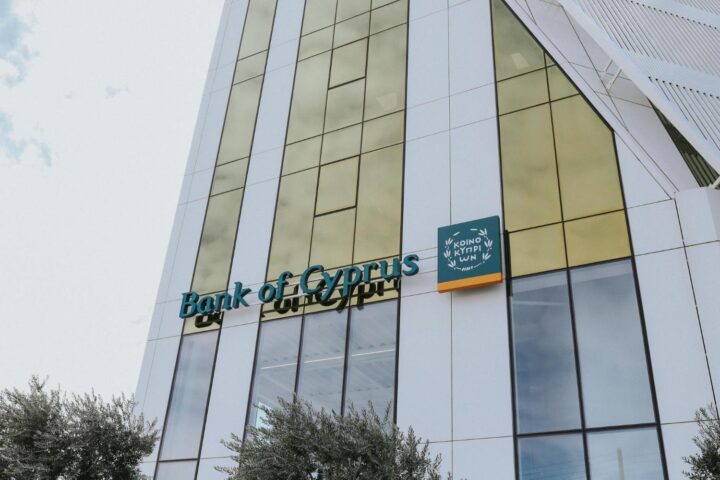Social partners have welcomed the renewal of collective agreements between two of Cyprus largest banks and staff unions but there is a fragile truce.
Working relations in the banking sector may be in for a bumpy ride as Hellenic Bank appears adamant on changing the way their employers are awarded for their achievements.
Deals between bank employees’ main union ETYK with Bank of Cyprus and Astrobank have been perceived as positive following recent strikes at Hellenic Bank over the renewal of collective agreements.
Both sides have made deep concessions to maintain harmony in the economy’s most vital sector, however, the future may hold unpleasant surprises as the role of labour unions comes into question.
ETYK is perceived to have taken a step back from insisting on automatic pay increases yearly until at least the end of 2020.
For the period 2019-2020, instead of granting a horizontal increase based on salary scales of each employee, the union agreed on the bank giving an equal pay rise for all staff of €115 per month.
It has also accepted contributions to the union’s provident fund made by the employers to be reduced by 1% to 8% during 2020.
Employees have seen contributions to their provident fund by employers drop from 21% in 2008 to 8% this year.
Also, ETYK has accepted that the Cost of Living Allowance (CoLA) will remain at the same level as last year, while increases will be added from 2021 onwards.
Banking stakeholders welcomed the development as they see it reducing wage increases in the Bank of Cyprus, at a time when it is trying to rationalise costs.
A BoC source told the Financial Mirror that the institution’s management is pleased with the outcome of negotiations with ETYK on the renewal of the collective agreement, as conflicts have been avoided.
BoC management seems to be happy, according to the source, as in combination with the voluntary exit plan which will see some 470 employees leaving, operating costs will significantly drop.
Also welcoming the development, the Cyprus Federation of Employers and Industrialists (OEB) feels the agreement is a step in the right direction to maintaining stability in the most vital sector of the economy.
“Any agreement aimed at consolidating labour peace and which is beneficial to both parties, employers and trade unions, is essential,” said Lena Panayiotou director of OEB’s Industrial Relations and Social Policy Department.
She said the agreement between Bank of Cyprus and ETYK promotes adjustments to the payroll strand in a positive direction that is in line with the new conditions created in the banking environment.
Concessions on both sides
Also pleased with the outcome of the negotiations, ETYK said in a statement released earlier in the week that the framework of the agreement is to the mutual benefit of Bank of Cyprus and the employees.
The union argued it made concessions in recognition BoC and the banking sector will need to be supported to a significant degree, especially in the next two years, which will, as they note, be critical for the banking sector and the bank.
While all sides seem to be pleased with developments, an independent observer feels that BoC has got the short end of the stick from the deal.
Commenting on the deal for the Financial Mirror, the observer noted that the deal can be considered as a success for the union as it maintains its base support from employees who are not part of the chain of command.
“A total of €230 rise for two years is no laughing matter, while the union maintains its role as a key player in decision making by banking institutions,” said the source.
“Unions, in general, have an excess say in how the bank is run. Internal moves of branch managers and departments have to go through the unions. They even have a say in security measures taken at branches.”
But BoC did not obtain key changes it set out to achieve when entering negotiations.
“BoC wanted to replace the outdated system of automatic increases which fails to reward capable and productive staff with a scheme that would see employees rewarded for their productivity,” said the source.
He added that BoC wanted to introduce a new reward system which would not be part of a collective agreement, to improve its cost to income rate.
“It is not only about reducing operating costs for the sake of reducing costs. More importantly, it is about improving the cost to income ratio, to be in a position to attract capital through equity. The first thing an investor will look at, before buying any equity is the cost to income rate.”
The source said, right now, no one is interested in BoC’s equity.
He pointed out that it would be interesting to see which way things will swing at Hellenic Bank where its management is in conflict with the union.
Hellenic appears adamant in granting its staff a 2% horizontal salary increase and an additional increase to those who, according to management, have high productivity and performance, thus changing the annual compensation and promotion system.
The crisis at Hellenic Bank is threatening to drive labour relations in Cyprus’ banking system into uncharted waters, making it difficult to manage such disputes in the future, as employees staged a 24-hour strike in November.
Hellenic’s CEO Ioannis Matsis has said the system of “automatic increases” was not in tune with the times.
“You have to reward performance rather than blindly increasing everyone’s salary, without taking into account productivity.”
Cyprus International Institute of Management (CIIM) finance professor George Theocharides, told the Financial Mirror that renewal of the collective agreement is a product of concessions made by both sides, to maintain labour peace. He noted that ETYK has conceded on several issues but has also obtained some benefits.
He argued that unions need to understand that times are changing.
“Especially in a sector as important as banking, labour harmony is a condition sine qua non, but the times have changed and so should the role of the unions,” said Theocharides.
He said unions need to understand they should stick to their task of protecting workers’ right, leaving the management free to make decisions like how to reward employees that exhibit exceptional performance.










